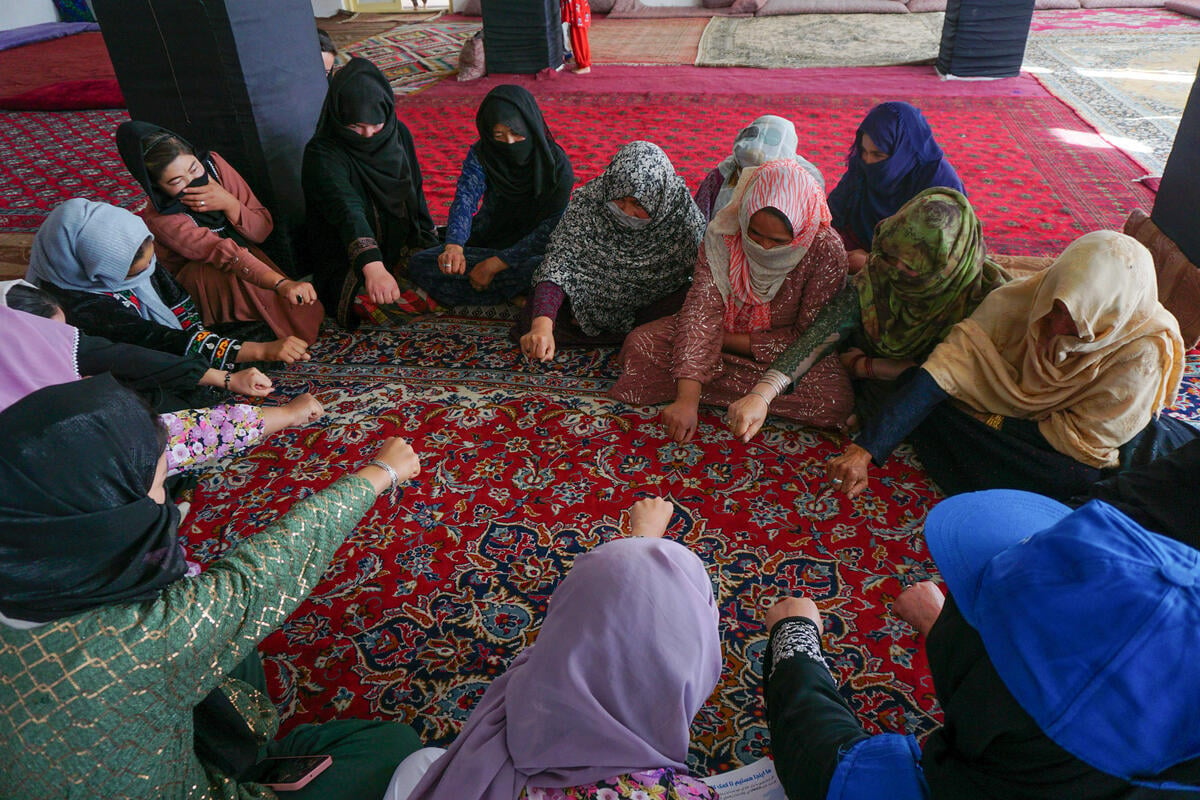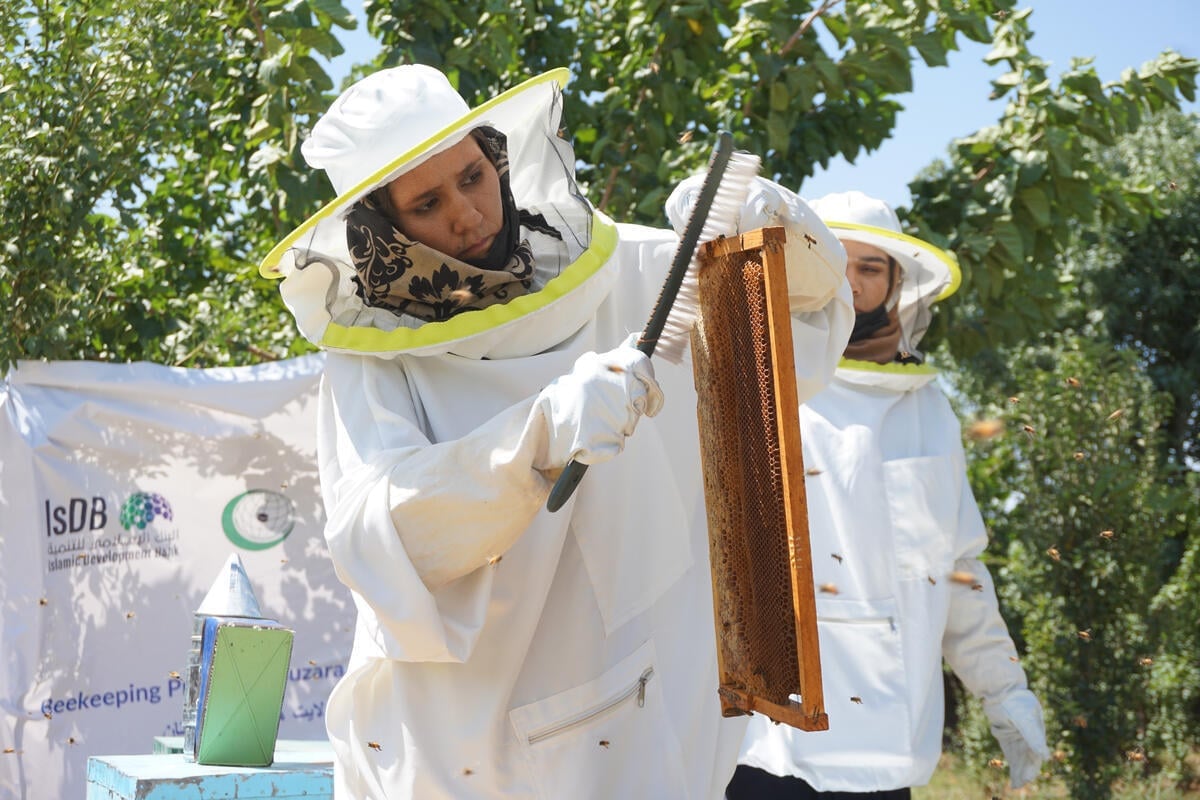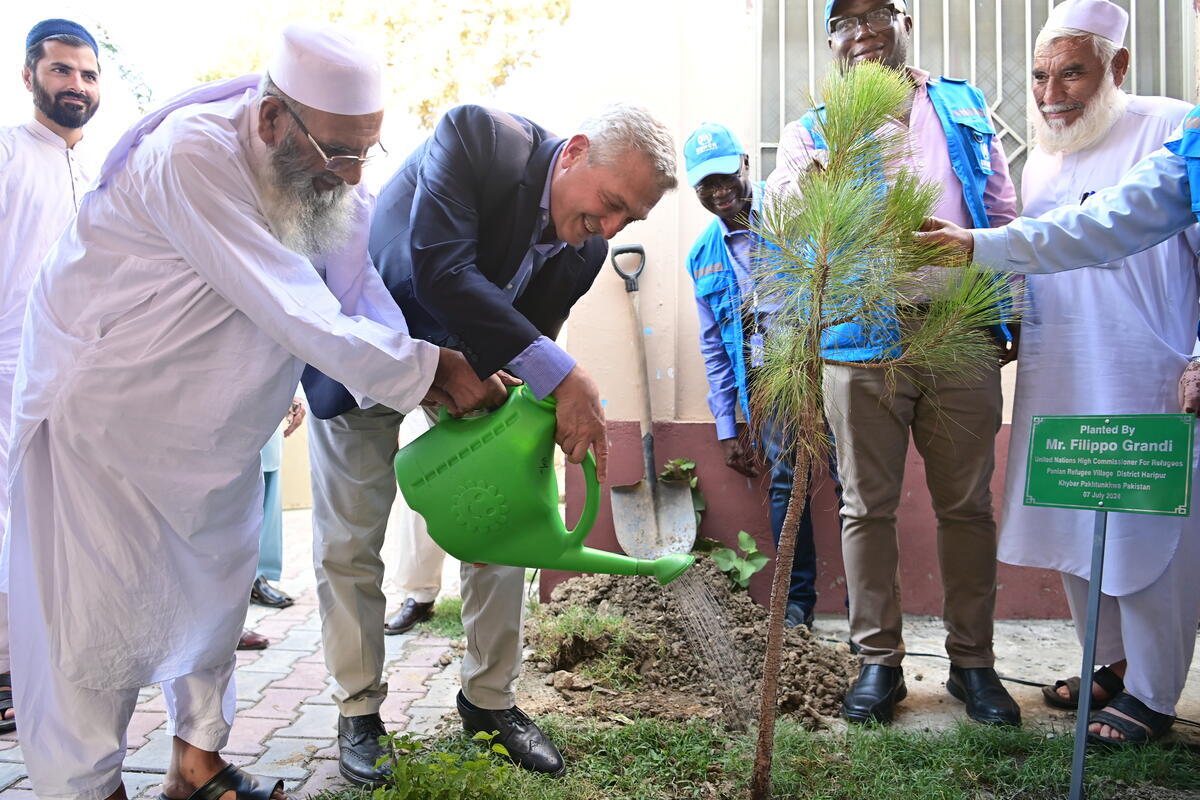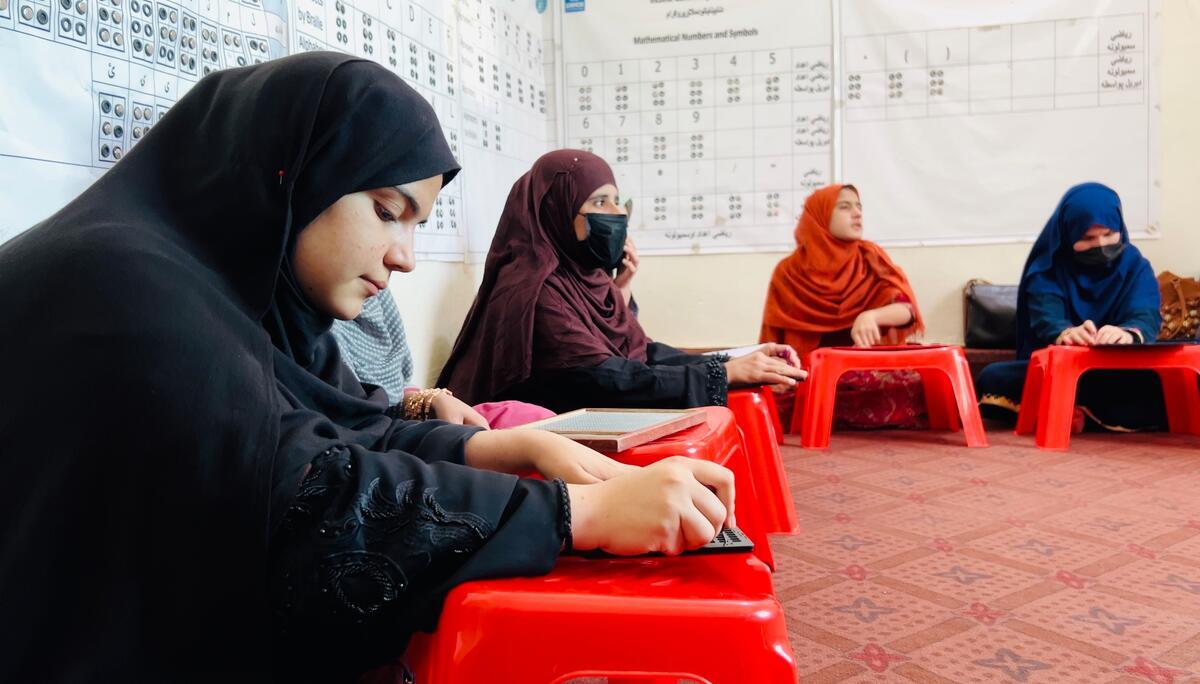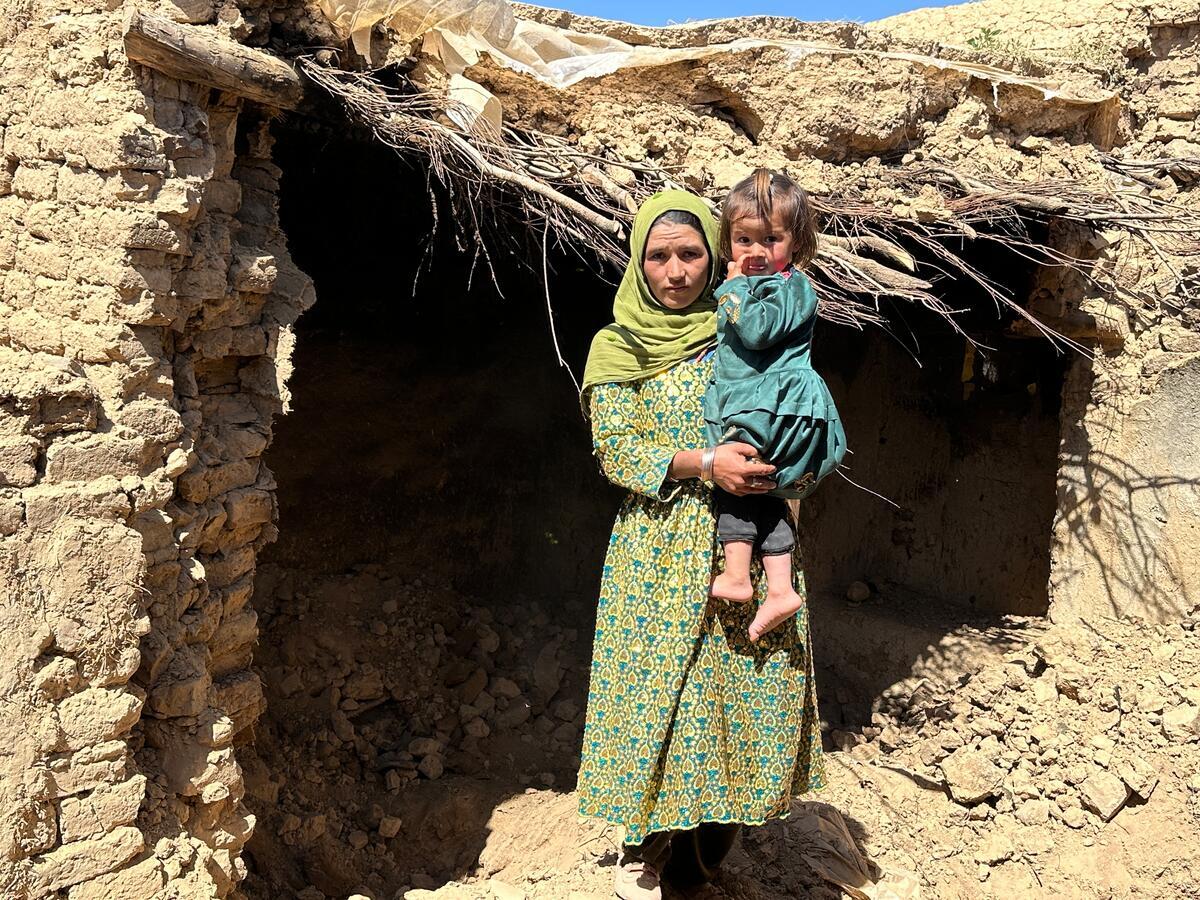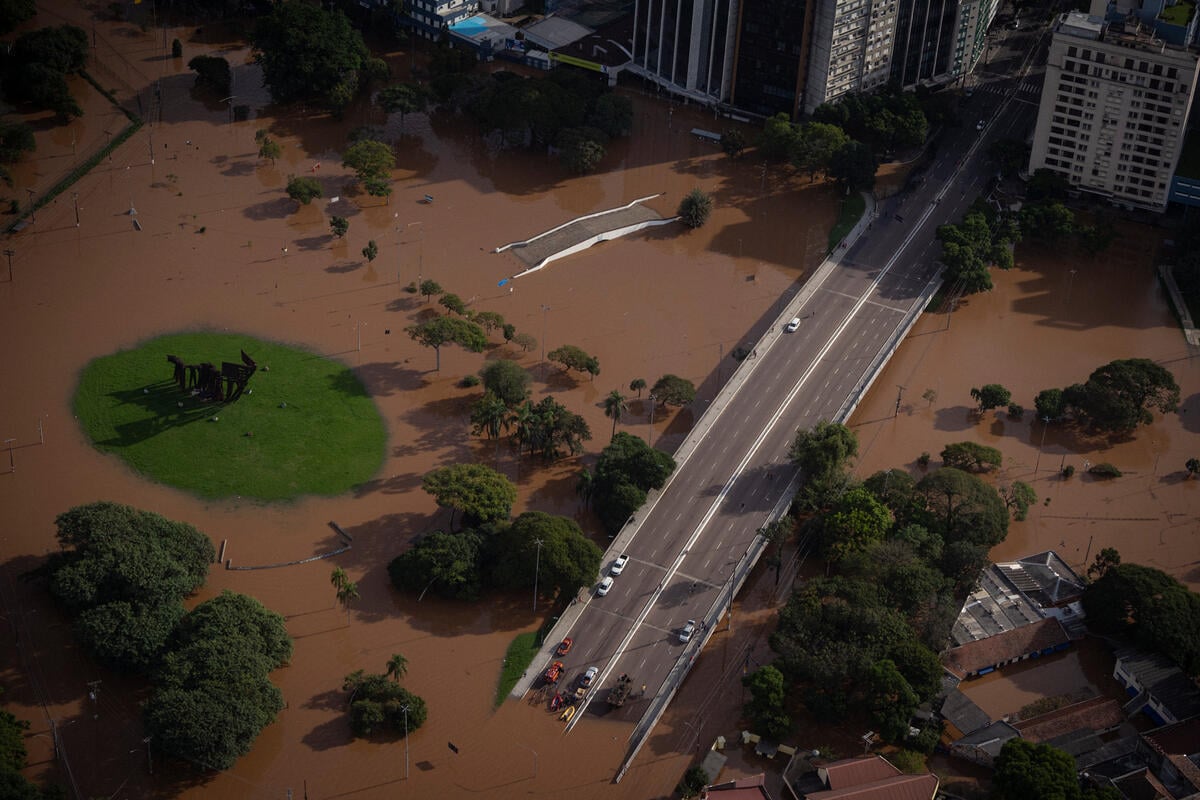Afghanistan: key roads re-opened
Afghanistan: key roads re-opened
With a wave of Afghans starting to return home spontaneously from Iran and Pakistan - more than 105,000 in January alone - UNHCR is now ready to start assisting people inside Afghanistan as they travel back to their home areas. During the next two to three months, we expect to provide returnee packages to some 250,000 Afghans - returnees from Pakistan and Iran - but also internally displaced persons opting to head home. Our offices inside Afghanistan will shortly begin distributing plastic tarpaulins, blankets, jerry cans, buckets and kitchen utensils to returnees who approach us. Organized repatriation convoys are not expected to begin until late March. This year, we're planning for returns of some 800,000 Afghans from both Iran and Pakistan and will also assist another 400,000 displaced persons inside Afghanistan.
In Herat, Afghanistan's principal western city, the situation continues to stabilize. The massive number of displaced persons concentrated in camps around the city remains a problem. UNHCR continues to play a supportive role with IOM in organizing the registration at the sprawling Maslakh site, which shelters more than 150,000 people.
UNHCR currently has 11 offices open in Afghanistan, including two offices in Kabul for our regional coordinator and to cover central Afghanistan. We have four other sub-offices in Jalalabad, Mazar-i-Sharif, Herat and Kandahar and five field offices in Islam Qala, Zaranj, Spin Boldak, Puli-khumri and Kunduz. In all, we plan to open 22 offices across the country to ensure we can reach as many Afghans as possible. Our staff numbers are increasing all the time. UNHCR currently has 57 international staff inside Afghanistan, including 22 expatriates in Kabul, 10 in Mazar, 10 in Herat, nine in Kandahar, five in Jalalabad and one in Zaranj.
To add to the statistics we provided last Friday regarding the large number of ethnic Tajik Afghans repatriating from Pakistan, of the 20,000 returnees from Iran in January, 19,000 were adult males without families, of whom 61 percent were Tajiks, 14 percent were Hazaras, 14 percent where Pashtuns, eight percent were Uzbeks and three percent were Turkmens.
Over the weekend, key roads leading into eastern and central Afghanistan were declared safe for travel by relief workers, a move that will ease the delivery of UNHCR's relief items and further enhance our ability to reach key areas of the country. Kabul is now accessible for aid workers from both the north and east. This follows a successful UN security mission on Sunday over the Jalalabad-Kabul road, passing through Sarobi District, where four journalists were killed last November. The opening of this route enables the movement of both aid workers and supplies overland from Peshawar, Pakistan, through to Kabul.


